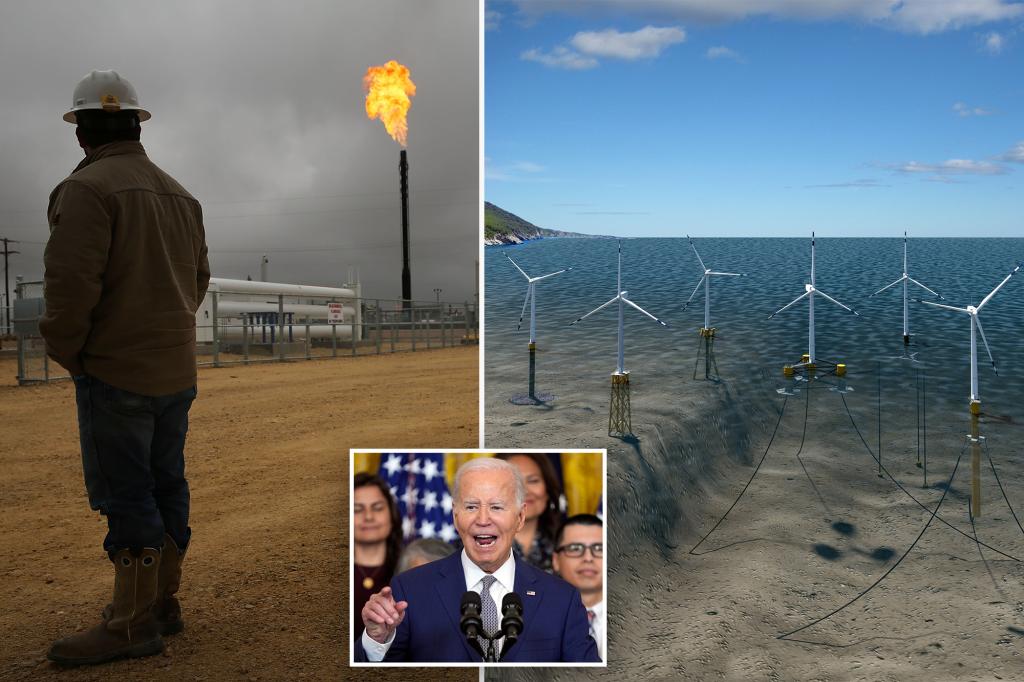Breaking News
Texas leads 19-state coalition challenging green energy transition mandate

Texas is at the forefront of a coalition of 19 states challenging a federal agency’s mandate to implement a “green energy” transition.
These states have filed a complaint with the Federal Energy Regulatory Commission (FERC) in response to a rule that aims to increase federal control over the US electric grid.
Currently, individual state regulatory bodies have the authority to determine the most effective energy sources for their respective states.
The new rule by FERC seems to be an unfunded mandate, compelling states to adopt “green energy” electricity generation and bear the costs of transitioning to it.
Texas, with its independent electric grid, spearheaded the filing of the complaint on behalf of the 19-state coalition.
The coalition argues that FERC’s rule oversteps its authority, lacks rationale, and imposes unjust rates that violate the Federal Power Act.
The coalition states in its 48-page brief that the rule lacks a logical basis and goes against the evidence.
FERC’s rule is seen as an attempt to indirectly bypass states’ exclusive authority over energy generation decisions by favoring remote renewable generation and shifting transmission costs onto consumers.
The coalition comprises states like Texas, Alabama, Arkansas, Florida, Georgia, Idaho, Iowa, Kansas, Kentucky, Louisiana, Mississippi, Montana, Nebraska, North Dakota, Oklahoma, South Carolina, South Dakota, Tennessee, and Utah.
The dispute centers on FERC’s Order No. 1920 issued on May 13, 2024, which suggests that existing transmission planning processes are inadequate and discriminatory.
The order mandates states to bear the costs of transitioning regional transmission lines to support “green energy” generation, even if it doesn’t align with the state’s energy requirements and compromises grid efficiency and reliability.
In Texas, for instance, ERCOT has emphasized the importance of natural gas over wind and solar power to meet energy demands, particularly during extreme weather conditions.
Recognizing the need for reliable energy sources, Texas has invested $5 billion in natural gas infrastructure to enhance grid reliability, garnering a positive response.
Contrastingly, federal offshore wind auctions in the Gulf of Mexico have received zero bids in Texas, yet the Biden administration is pursuing a second round of auctions.
The Texas General Land Office has opposed federal efforts to access state-owned land for transmission lines, citing concerns about unproven technology and advocating for Texas-produced natural gas.
Texas, a major player in natural gas production and LNG exports, leads the way in embracing clean and reliable energy sources.
The coalition of 19 states argues that FERC lacks the authority to restructure state energy grids and force states to subsidize large-scale transmission lines that are not cost-effective. This encroachment on state authority hinders efficient grid regulation in the name of costly climate goals.
Texas Attorney General Ken Paxton criticizes the president’s energy control ambitions, warning of increased costs and reduced reliability in energy production.
The AGs united to oppose the administration’s energy transition scheme, led by former Louisiana AG and current governor Jeff Landry, who advocates for domestic energy production.
Landry emphasizes the role of American energy in global poverty alleviation, underscoring the importance of reliable and affordable energy sources.
-

 Destination7 months ago
Destination7 months agoSingapore Airlines CEO set to join board of Air India, BA News, BA
-

 Breaking News8 months ago
Breaking News8 months agoCroatia to reintroduce compulsory military draft as regional tensions soar
-

 Tech News11 months ago
Tech News11 months agoBangladeshi police agents accused of selling citizens’ personal information on Telegram
-

 Breaking News8 months ago
Breaking News8 months agoBangladesh crisis: Refaat Ahmed sworn in as Bangladesh’s new chief justice
-

 Guides & Tips9 months ago
Guides & Tips9 months agoHave Unlimited Korean Food at MANY Unlimited Topokki!
-

 Gaming8 months ago
Gaming8 months agoThe Criterion Collection announces November 2024 releases, Seven Samurai 4K and more
-

 Toys10 months ago
Toys10 months ago15 of the Best Trike & Tricycles Mums Recommend
-

 Tech News9 months ago
Tech News9 months agoSoccer team’s drone at center of Paris Olympics spying scandal























